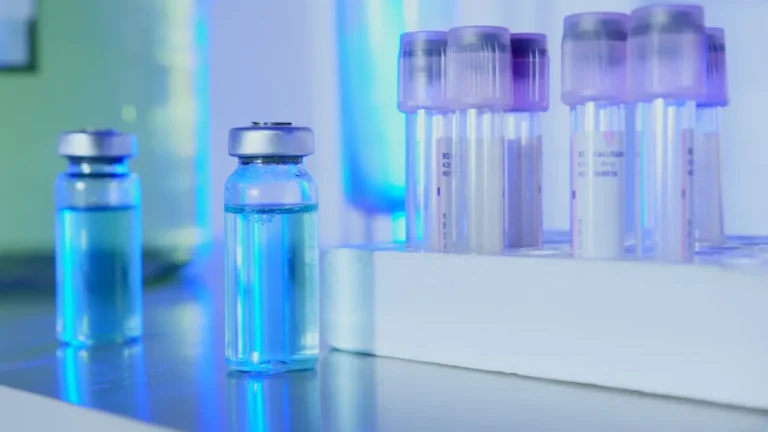PureTech Health Presents New Phase 2b Analyses Demonstrating Consistent Safety and Efficacy of Deupirfenidone in Older Patients with Idiopathic Pulmonary Fibrosis
Findings Highlight Potential for Deupirfenidone to Address a Critical Unmet Need in an Underserved Patient Population
Boston, Mass. — [Month] [Day], 2025 — PureTech Health plc (Nasdaq: PRTC, LSE: PRTC) (“PureTech” or the “Company”), a clinical-stage biotherapeutics company dedicated to giving life to science and transforming innovation into tangible value, today announced new analyses from the Phase 2b ELEVATE IPF trial evaluating deupirfenidone (LYT-100) in patients with idiopathic pulmonary fibrosis (IPF).
The new data, presented at the American College of Chest Physicians (CHEST) 2025 Annual Meeting, demonstrate that the favorable safety and efficacy profile of deupirfenidone was consistent across age groups, including in patients aged 75 years and older—a population that has historically been underrepresented in clinical trials and less likely to receive treatment due to tolerability challenges with currently available antifibrotic therapies.
These results suggest that deupirfenidone may address a key gap in the treatment landscape for IPF by offering a better-tolerated therapeutic option that does not compromise efficacy in older adults, who represent a large proportion of those affected by the disease.
Addressing a Persistent Challenge in IPF Treatment
Idiopathic pulmonary fibrosis is a progressive, life-threatening lung disease characterized by scarring of lung tissue, which leads to irreversible decline in lung function and, ultimately, respiratory failure. The disease predominantly affects older adults, with the majority of cases diagnosed in individuals over the age of 60. Despite the availability of antifibrotic therapies that can slow disease progression, many older patients remain undertreated due to the side effects and tolerability limitations of current medications.
“Older adults make up the majority of the IPF population, yet they are often underrepresented in clinical studies and less likely to receive antifibrotic treatment,” said Tejaswini Kulkarni, MD, MPH, Associate Professor of Pulmonary, Allergy and Critical Care Medicine at the University of Alabama at Birmingham, who presented the findings at CHEST 2025. “Antifibrotic medications can be difficult to tolerate, especially in older individuals who often have other health issues or are taking multiple medications. The data from this analysis are an encouraging sign that age does not necessarily translate into a poorer treatment experience with deupirfenidone.”
Dr. Kulkarni added, “Demonstrating consistent safety and efficacy across age groups reinforces the differentiated profile of deupirfenidone and its potential to benefit a broad range of patients living with IPF, including those who have been historically underserved.”
ELEVATE IPF: A Rigorous Phase 2b Trial
The ELEVATE IPF trial was a randomized, double-blind, active- and placebo-controlled Phase 2b study designed to evaluate the safety, tolerability, and efficacy of deupirfenidone compared to both placebo and pirfenidone, one of the currently approved antifibrotic treatments for IPF.
A total of 257 patients with idiopathic pulmonary fibrosis were enrolled and assigned to receive one of the following treatment regimens:
- Deupirfenidone 825 mg three times daily (TID)
- Deupirfenidone 550 mg TID
- Pirfenidone 801 mg TID
- Placebo
This new sub-analysis specifically examined outcomes in patients aged 75 years and older (n=91) compared with those younger than 75 years (n=166), given that tolerability issues are a major barrier to treatment in the elderly IPF population.
Consistent Tolerability and Safety Across Age Groups
The results of the age-based sub-analysis demonstrated that treatment-emergent adverse events (TEAEs), including gastrointestinal side effects commonly associated with antifibrotic therapy, were similar across both age groups.
For example, the rates of nausea—a frequent cause of treatment discontinuation—were comparable between older and younger patients across treatment arms:
- Deupirfenidone 825 mg TID: 18.2% (≥75 years) vs. 21.4% (<75 years)
- Deupirfenidone 550 mg TID: 14.3% (≥75 years) vs. 18.2% (<75 years)
- Pirfenidone 801 mg TID: 25.9% (≥75 years) vs. 27.8% (<75 years)
- Placebo: 9.5% (≥75 years) vs. 6.8% (<75 years)
These findings indicate that older patients tolerated deupirfenidone as well as younger patients—a significant observation, considering that tolerability challenges often limit treatment options for this age group.
Beyond safety, efficacy results remained consistent with previously reported outcomes from the ELEVATE IPF trial, supporting deupirfenidone’s strong performance in reducing disease progression and reinforcing its differentiated therapeutic profile.
Potential to Expand Access and Improve Outcomes
“Older patients represent a large and growing segment of the IPF population, yet they’ve historically been less likely to receive treatment due to concerns around tolerability,” said Camilla Graham, MD, MPH, Senior Vice President of Medical Affairs at PureTech Health. “These findings underscore deupirfenidone’s potential to be a well-tolerated and effective treatment option for a broader range of patients, including those who have been underserved by existing therapies.”
Dr. Graham continued, “The consistent safety and efficacy profile observed across age groups adds to the growing body of evidence supporting deupirfenidone’s differentiated mechanism and tolerability advantage. We believe this molecule has the potential to meaningfully improve the standard of care for people living with IPF—particularly for older adults who have been historically excluded or limited in their treatment options.”



